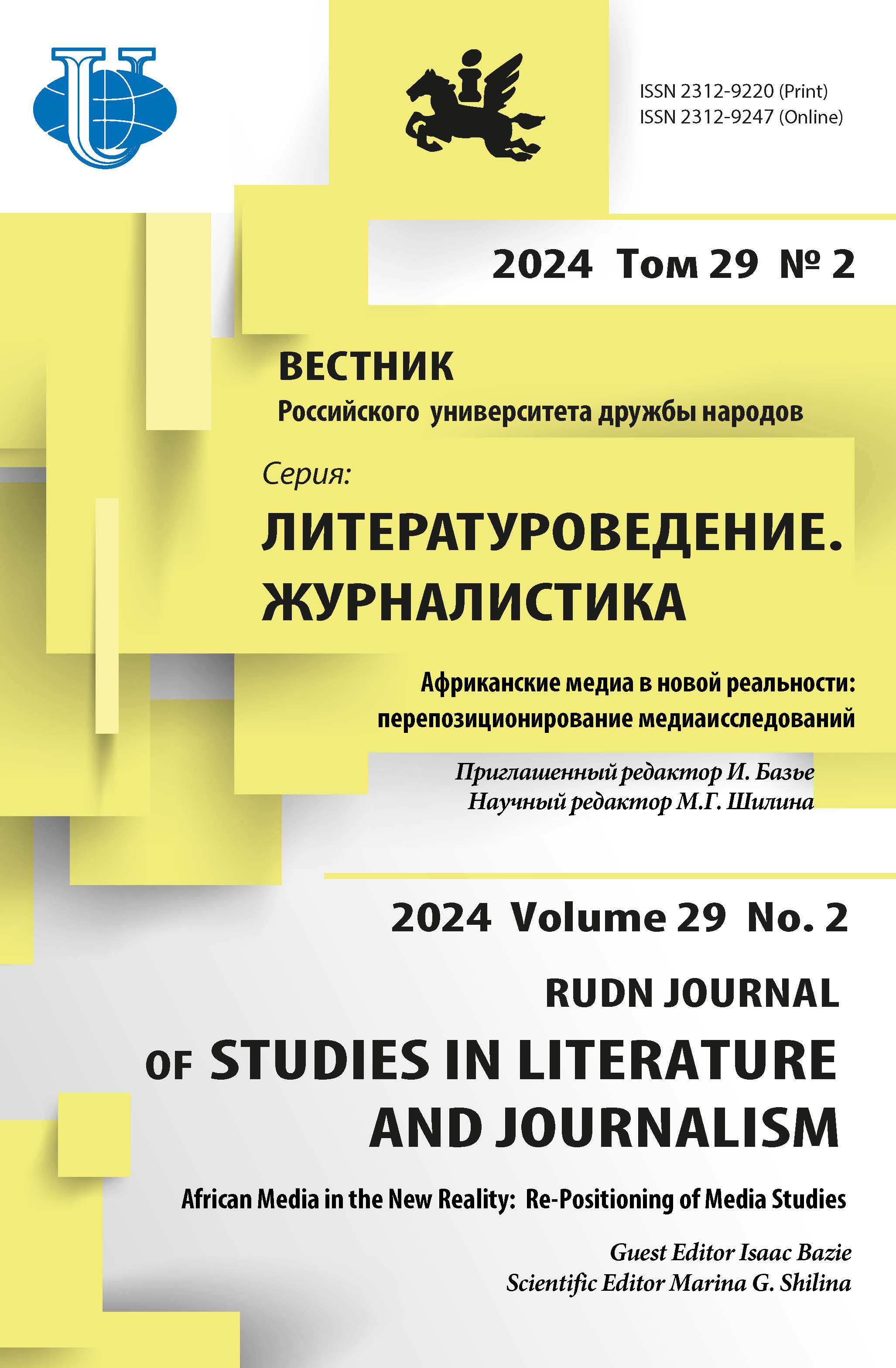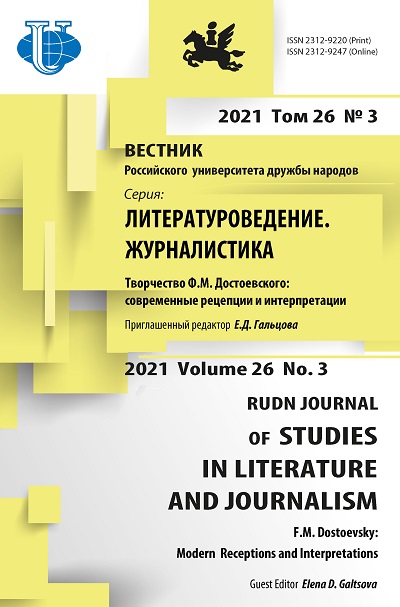«Возможные миры» и смыслы художественной провиденции Ф. Достоевского в мессианских рецепциях ХХ века
- Авторы: Гарипова Г.Т.1
-
Учреждения:
- Владимирский государственный университет имени А.Г. и Н.Г. Столетовых
- Выпуск: Том 26, № 3 (2021): ТВОРЧЕСТВО Ф.М. ДОСТОЕВСКОГО: СОВРЕМЕННЫЕ РЕЦЕПЦИИ И ИНТЕРПРЕТАЦИИ
- Страницы: 349-362
- Раздел: Литературоведение
- URL: https://journals.rudn.ru/literary-criticism/article/view/27638
- DOI: https://doi.org/10.22363/2312-9220-2021-26-3-349-362
Цитировать
Полный текст
Аннотация
Статья посвящена исследованию специфики рецептивного воздействия художественной мессианской концепции Ф. Достоевского, организующей провиденциальные контексты в культурфилософии ХХ века. Актуальность проблемы определяется возможностью в ее срезе выявить особенности художественного воплощения русской мессианской проблематики. Новизна данного исследования заключается в анализе стратегии моделирования «возможных миров» в творчестве Ф. Достоевского, референциально детерминирующего развитие русской утопической/антиутопической провиденции. В качестве объекта исследования были избраны концепты христологической аксиосферы, отражающие мессианскую концепцию Ф. Достоевского, определяющую важнейшие координаты провиденциального рецептивного поля ХХ века. Таким образом, семиотика художественных мессианских конструкций в русской литературе ХХ века связана, в первую очередь, с авраамическим религиозным контекстом, который встроен в сложнейшую провиденциальную концепцию антропологической христологии Ф. Достоевского. По принципам фрактальной логики писатель генерирует в ключевых мессианских миромоделирующих метаметафорах авраамический канон. Мессианский претекст Достоевского референицально проявлен в русской литературе ХХ века - в творчестве русских символистов, понимающих Мессию как божественно-экзистенциальную личность, в творчестве писателей конца ХХ века, соотносящих мессию как «коллективную личность» - заместительную жертву. На наш взгляд, с влиянием Достоевского связана и хилиастическая устремленность художественной мессианской христологии и антропологии. Однако следует говорить о диссипативной вариативности художественных мессианских концепций за счет контекстуальной референции мессианских представлений восточного происхождения, в частности, обнаруживаются зороастрийский, суфийский и исламский контексты. Художественная идея мессианства в русской литературе ХХ века может рассматриваться и как семиотическая знаковая система, выявляющая историософские и социально-политические смыслы, моделирующие тенденции антропологизации и онтологизации литературного процесса.
Об авторах
Гульчира Талгатовна Гарипова
Владимирский государственный университет имени А.Г. и Н.Г. Столетовых
Автор, ответственный за переписку.
Email: ggaripova2017@yandex.ru
ORCID iD: 0000-0002-7675-2570
кандидат филологических наук, доцент, зав. кафедрой русской и зарубежной филологии
Российская Федерация, 600000, Владимир, ул. Никитская, д. 1Список литературы
- Достоевский Ф.М. Преступление и наказание // Полн. собр. соч.: в 30 т. Т. 6. Л.: Наука, 1973. 423 с.
- Иванов В.Г. Родное и вселенское. URL: https://sv-scena.ru/Buki/Rodnoye-i-vsyelyens koye.248.html (дата обращения: 15.05.2021).
- Сыромятников О.И. Антихрист в романе Ф.М. Достоевского «Бесы» // Вестник Вятского государственного университета. 2014. № 4. С. 112-121.
- Бердяев Н.А. Философия свободы. Смысл творчества. М.: Правда, 1989. 608 с.
- Иванов В.Г. Мессианские взгляды А.С. Хомякова и В.С. Соловьевa: автореф. дис.. канд. филос. наук: 09.00.06 / Гос. музей истории религии. СПб., 2000. 22 с.
- Франк С.Л. Этюды о Пушкине. Мюнхен, 1957. URL: https://vtoraya-literatura.com/pdf/ frank_semen_etyudy_o_pushkine_1957__ocr.pdf (дата обращения: 25.03.2021).
- Достоевский и Ислам: Опыт переживания и осмысления Достоевским исламских ценностей уникален для его времени // Исламский образовательный портал ISLAMDAG.RU. URL: http://islamdag.ru/vse-ob-islame/25222 (дата обращения: 12.05.2021).
- Ницше Ф. Антихристианин. Опыт критики христианства // Сумерки богов / сост. и общ. ред. А.А. Яковлева). М.: Политиздат, 1990. С. 17-93.
- Ницше Ф. Антихрист. Ecce Homo. Сумерки идолов. М.: АСТ, 2020. 352 с.
- Мережковский Д.С. В тихом омуте. Статьи и исследования разных лет. М.: Сов. писатель, 1991. 491 с.
- Горенштейн Ф. Псалом. Роман. URL: https://www.litmir.me/br/?b=5167&p=81 (дата обращения: 10.05.2021).
















